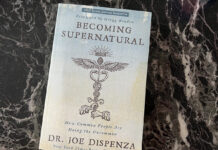“There was a rich man who was dressed in purple and fine linen and lived in luxury every day. At his gate was laid a beggar named Lazarus, covered with sores and longing to eat what fell from the rich man’s table. Even the dogs came and licked his sores.”
“The time came when the beggar died and the angels carried him to Abraham’s side. The rich man also died and was buried. In hell, where he was in torment, he looked up and saw Abraham far away, with Lazarus by his side. So he called to him, ‘Father Abraham, have pity on me and send Lazarus to dip the tip of his finger in water and cool my tongue, because I am in agony in this fire.’”
“But Abraham replied, ‘Son, remember that in your lifetime you received your good things, while Lazarus received bad things, but now he is comforted here and you are in agony. And besides all this, between us and you a great chasm has been fixed, so that those who want to go from here to you cannot, nor can anyone cross over from there to us.’” Luke 16:19-26
Charles Sheldon tells the story in his classic novel, “In His Steps,” about a young pastor walking to his church early one cold Sunday morning. As he approaches the white-steepled church in the center of their village, the sight of a homeless man sleeping on the front lawn of the church disturbs him.
The pastor hurries by the man with the vague hope that the vagrant will be gone by the time the members arrive. In a hurry to fulfill his duties, he turns on the lights and fires up the heat.
The people arrive, and the pastor ascends the pulpit to begin the service. A moment later, the homeless man shuffles in the back door. He plops in the last row, a rumpled mess, as people move away from his smell.
Later, as the pastor closes in prayer, he notices the man slip out the door. The people then greet the pastor at the door and congratulate him on his fine message. Finally, after locking up the church, the reverend turns to walk home and discovers the man asleep again on the lawn.
The pastor can’t take it anymore, so he approaches the bedraggled figure and shakes him. “Wake up! You can’t sleep here. Move on.”
The man doesn’t stir, so he rousts him again in utter frustration, “Get up and go!” It’s then he realizes the man is dead.
Stunned, the pastor staggers backward. “Oh no, my message was the last words he heard. Was he ready to meet the Lord?”
“Lord, did we show him your love?” He cries out in his heart.
No one had taken the time to talk with the homeless man.
God feels the sorrow of hurting people, even when we don’t. It is the driving passion moving him toward each of us. The Lord feels human pain.
Christ gravitates toward grieving, sick, and poor people. It also moves Him toward us. Compassion is Jesus repeatedly reflected toward the hurting. Written into the DNA of Christians everywhere, this emotion moves us as well. Too often, selfishness is the roadblock that derails kindheartedness.
In Luke 16:19-31, Jesus paints the picture of the rich man and Lazarus. The rich man basks in the sunlight of luxury. Meanwhile, poor Lazarus suffers at the gate with only dogs to lick the pus from his sores.
This contrast between the wealthy and the deprived is glaring. As the story unfolds, both characters die and arrive in vastly different eternal dwellings. The rich man enters hell with all of its torments, not the least of which is the ability to see Lazarus and those who have entered paradise in the “bosom of Abraham.”
There are two distinct realms of life after death. Jesus leaves no space for evading the ultimate reality of heaven or hell. Our destiny is determined by our faith and how we act upon that belief.
This parable forces us to look beyond this life to see the inseparable link between life now and how we spend eternity. Death is not an ending, but the transition to eternal life. The story is both a harsh warning and a harbinger of hope as the question lingers, “Where will we spend eternity?”
Lazarus did not go to paradise because he was poor, nor did the rich man go to hell because he was wealthy. What happened to their souls during their lives?
In this passage, there was not a word of anger, resentment, or despair from Lazarus. He found comfort and life eternal in the arms of God.
In contrast, the rich man bathed in contentment, never noticing the starving beggar at his gate. His heart remained untouched by the mercy of God. Callous disregard for Lazarus was the shovel that dug the great chasm. His sin was not noticing the pain of others.
Christ is calling us to give compassion toward the poor. Jesus is always pro-people. We should ache with the hurting and grieve for the less fortunate.
Dave Holland pastored churches for 38 years before retiring in Destin. He recently released his new devotional-Bible study based on the Gospel of Luke titled “Prodigal Jesus, Journey Back to the Father” You can get a copy of this book from his website, DaveHolland.org, or at Amazon.com. Pastor Dave is available to preach and teach in churches and conferences. Contact him at DavidvHolland54@gmail.com.
Views: 3


























































